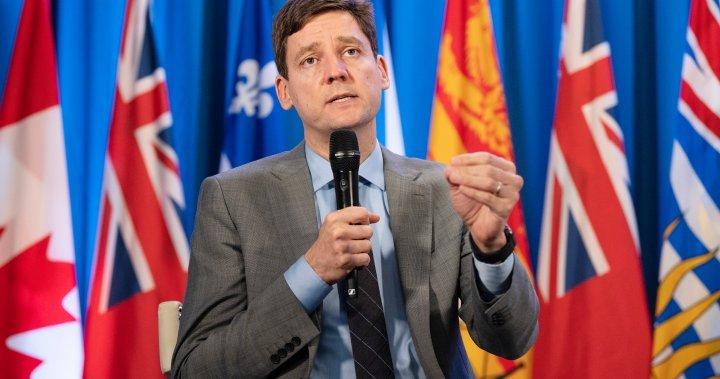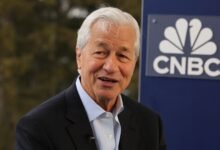‘Economic wartime’: Eby backs federal tariff response, possible export bans

Citing “economic wartime,” B.C. Premier David Eby says his government backs a federal plan to respond to proposed U.S. tariffs, up to and including possible export tariffs and targeted export bans.
Eby made the comments Wednesday after meeting with premiers from across the country, in anticipation of U.S. president-elect Donald Trump’s threat to impose 25 per cent tariffs on Canada.
Eby said premiers understood the “importance of unity,” and were in consensus on the need to prepare for Trump to impose the full 25 per cent tariff.
“We supported the federal government’s proposals around responding with tariffs and continue to support tariff response as well as the possibility of export taxes as well as export bans of particular and strategic commodities from Canada to the United States,” Eby said.

Earlier Wednesday, Prime Minister Justin Trudeau agreed no one region of the country should “disproportionately bear the burden” in response to those potential tariffs, but added that “everything is on the table as potential responses.”
Eby said the premiers were also united on the need to break down interprovincial trade barriers and to work to expand trade partnerships with countries other than the United States.

Get daily National news
Get the day’s top news, political, economic, and current affairs headlines, delivered to your inbox once a day.
B.C. also pushed for Ottawa to speed up federal approval of major projects in B.C., including critical mineral extraction.
The province is also fully supportive of Ottawa’s new border security plan.
“In particular around B.C.’s concerns related to money laundering, fentanyl, importing drug precursors as well as Ontario and Quebec’s concerns about migration,” he said.

While premiers sought to present a united front on Wednesday, Alberta Premier Danielle Smith conspicuously declined to sign on to the federal plan.
Smith, who opposed blocking oil and gas exports to the U.S., posted to social media to explain her position.
“Federal government officials continue to publicly and privately float the idea of cutting off energy supply to the U.S. and imposing export tariffs on Alberta energy and other products to the United States,” she wrote.
“Until these threats cease, Alberta will not be able to fully support the federal government’s plan in dealing with the threatened tariffs.”
Eby downplayed potential division within the “Team Canada” tariff response, saying not everyone on board would agree on every tactic.
“Premier Smith needs to do what she feels she needs to do with respect to her home audience,” Eby said.
“I just know that as a Canadian and a British Columbian I am going to stand strong with premiers to make sure we are not limiting tools available to the federal government to respond to this.”

The potential impact Trump’s tariffs would have on B.C. remains unclear, though experts say the forestry sector — a veteran of U.S. trade disputes — will likely be among the hardest hit.
“At some point, these tariffs are going to come back to the mills. The low-cost regions are going to keep producing. B.C. is the highest-cost producing region in North America,” said Russ Taylor, president of industry consultancy Russ Taylor Global.
So if there are curtailments in the works because of low prices and high costs … B.C. mills will curtail first and the most … the loggers then curtail as well. It’s a house of cards after a while until you find the bottom.”
Canadian leaders and industry are holding out hope that the U.S. could back down, or at least moderate its position on tariffs, though those hopes are beginning to fade as Trump’s inauguration approaches.
Trump will take office on Jan. 20, at which point the trade picture should become more clear.
© 2025 Global News, a division of Corus Entertainment Inc.
https://globalnews.ca/wp-content/uploads/2025/01/david-eby.jpg?quality=85&strip=all&w=720&h=379&crop=1










